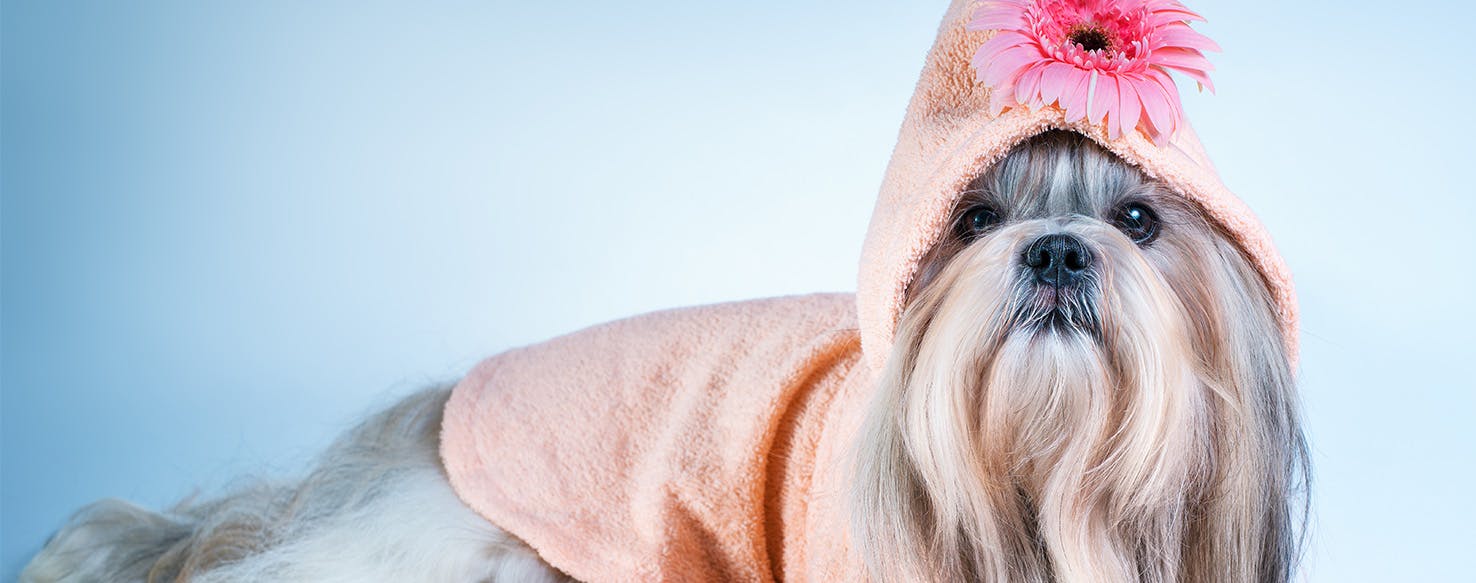
Save on pet insurance for your pet
You don't have to choose between your pet and your wallet when it comes to expensive vet visits. Prepare ahead of time for unexpected vet bills by finding the pawfect pet insurance.
-
Things to avoid
-
Counterintuitively, you might want to avoid dog shampoos with heavy perfumes. Many dogs find these smells offensive, so they’ll roll in something – dirt, poop, dead animal – to cover up the perfume smell.
-
Don’t let your dog run free if he has a tendency to roll in smelly things.
-
Proactive Steps that Can be Taken
-
Groom your dog on a regular basis. Ask your vet about how often your dog’s breed should be bathed.
-
Keep your dog’s environment clean. On a regular basis, pick up dog poop and anything else in the yard that might be smelly.
-
Things to Avoid
-
Foods that cause soft stools or diarrhea in your dog
-
Frightening, stressful situations, which may cause your dog’s anal glands to ooze or empty spontaneously
-
Proactive Steps that Can be Taken
-
Give your dog high fiber dietary supplements. This will help your dog have bulkier, firmer bowel movements, which usually help your dog’s anal glands empty on their own on a regular basis so there isn’t a build up over time.
-
Do your best to keep your dog at a healthy weight as obese dog’s tend to have more problems with their anal glands.
-
Things to Avoid
-
Prolonged use of antibiotics and corticosteroids
-
Exposure to other animals with fungal or bacterial infections
-
Proactive Steps that Can be Taken
-
Feed your dog food that doesn’t cause allergic reactions. If your vet suggest that your dog may be allergic to wheat, feed a food without wheat.
-
Keep your dog’s favorite blanket, bed, cushion, etc. clean
-
Separate pets with active infections from other pets
-
Things to avoid
-
Feeding your dog table scraps
-
Allowing your dog access to an area with a cat box as dog’s will often eat cat poop
-
Proactive Steps that Can be Taken
-
Brush your dog’s teeth on a regular basis with a veterinarian approved toothpaste formulated specifically for dogs.
-
Have your dog’s dental health checked out by your vet on a regular basis to catch problems early. Dogs sometimes need professional teeth cleaning just like you do.
-
Keep your yard cleaned up and garbage and cat litter box secured, so your dog doesn’t eat poop, dead animals, or trash.
-
These causes likely won’t be considered by your veterinarian until all the common causes have been excluded as the cause of the odor.
-
Healthier, more comfortable dog
-
Longer lifespan for your dog
-
Preventing routine conditions from becoming serious
-
Lower vet bills
-
You will have a cleaner, healthier, and more pleasant living environment for everyone in your family.

